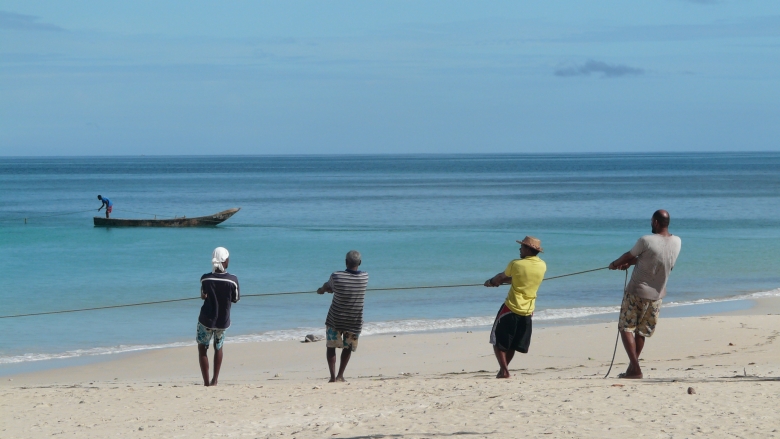October 29, 2018 - Famous for its pristine beaches, crystal clear seas and impressive biodiversity, the Republic of Seychelles will also now be known for introducing the world’s first sovereign blue bond.
The Seychelles, which recently issued a Blue Economy roadmap, recognized the need to rebuild and sustainably use its fish stocks through improved governance and management of the sector. However, the cost of shifting to sustainable fisheries can be substantial and this is where private sector financing can play an important role. The blue bond is one way to create a link between investors and blue economy projects.
“Through the blue bond and other project support, we aim to show how fisheries, as an ocean economy that is already well developed, can shift from business-as-usual to more responsible fishing and management practices that align with the core principles of a Blue Economy,” said Seychelles Vice President Vincent Meriton of the blue bond, which was structured with the help of the World Bank.
“The beneficiaries of the proceeds of the blue bond will be local communities, civil society organisations and businesses who are seeking financing for activities that can support a transition to sustainable fisheries,” he added.
After tourism, the fisheries sector is the Seychelles most important industry, contributing significantly to annual GDP and employing 17% of the population. Proceeds from the bond will fund a range of oceanic and marine activities, from boosting the fisheries value chain, the refurbishment of fishing boats for other purposes such as tourism, to improving aquaculture and marine conservation and spatial planning. The blue bond also complements a debt-for-nature swap that Seychelles did in 2015 with The Nature Conservancy in exchange for greater ocean protection and climate change adaptation.
Much like the World Bank’s first green bond did for climate a decade ago, the Seychelles blue bond is expected to stimulate interest among public and private investors wanting a bigger role in ensuring the sustainable use of ocean and marine resources. Oceans are under increasing environmental stress, from over-fishing and marine pollution to coastal erosion and the devastating impact of climate change, requiring a massive response from both the public and the private sector.
“The challenges facing our oceans are too big for governments alone to tackle and the private sector – in this case impact investors -- can play a crucial role in the development and protection of ocean resources for generations to come,” said Karin Kemper, Senior Director of Environment and Natural Resources at the World Bank.
The bond was issued with a ceiling value of US$15 million, with a maturity of 10 years. The World Bank provided support via a partial guarantee ($5 million) and the Global Environment Facility provided a concessional loan ($5 million), which will subsidize payment of the bond coupons. These credit enhancement instruments allowed for a reduction of the price of the bond by partially de-risking the investment of the impact investors, and by reducing the effective interest rate of 6.5% for Seychelles to 2.8% by subsidizing the coupons.
Since the total amount of the blue bond was relatively low volume in market terms, it was privately placed with three socially responsible impact investors based in the United States, namely Calvert Impact Capital, Nuveen, and Prudential.


